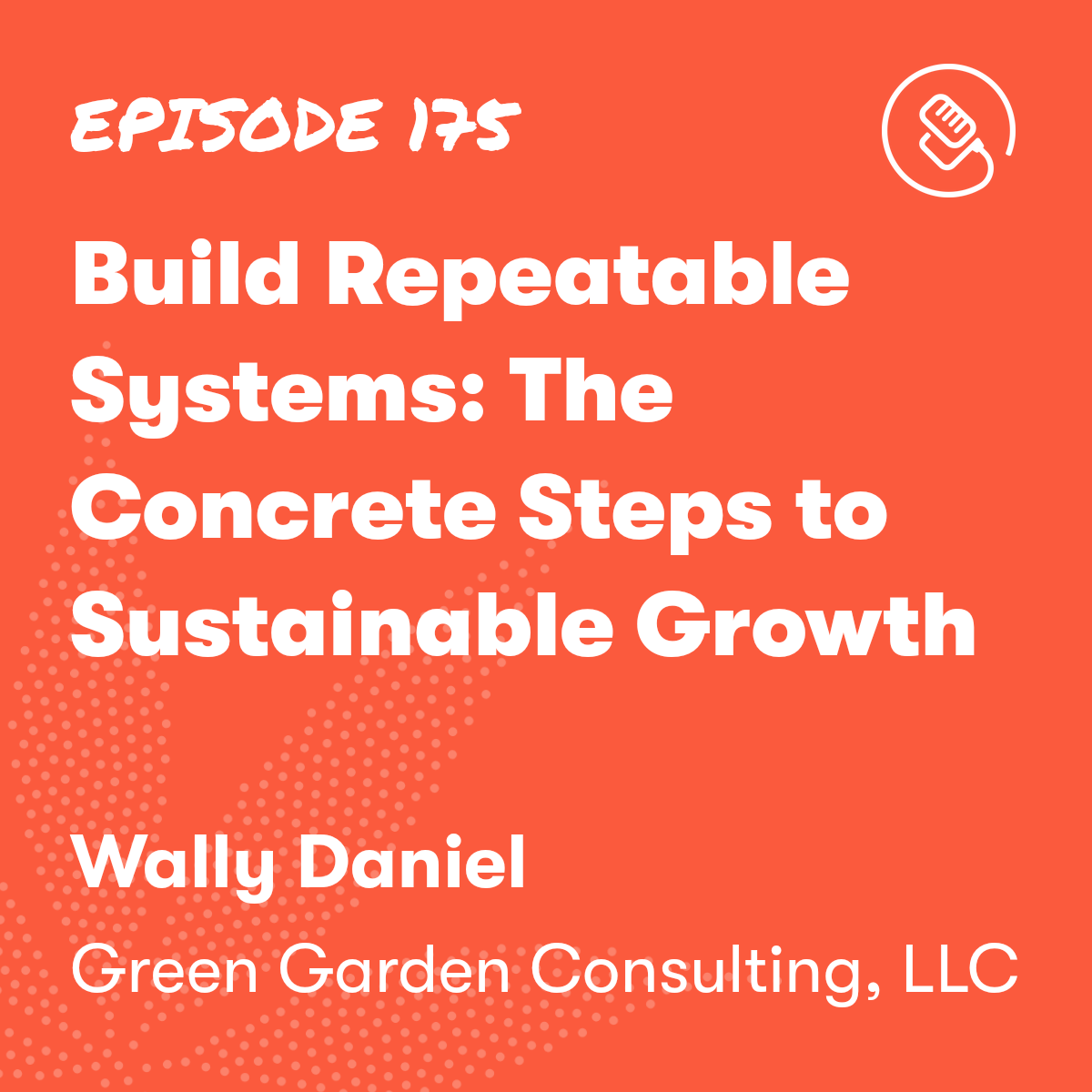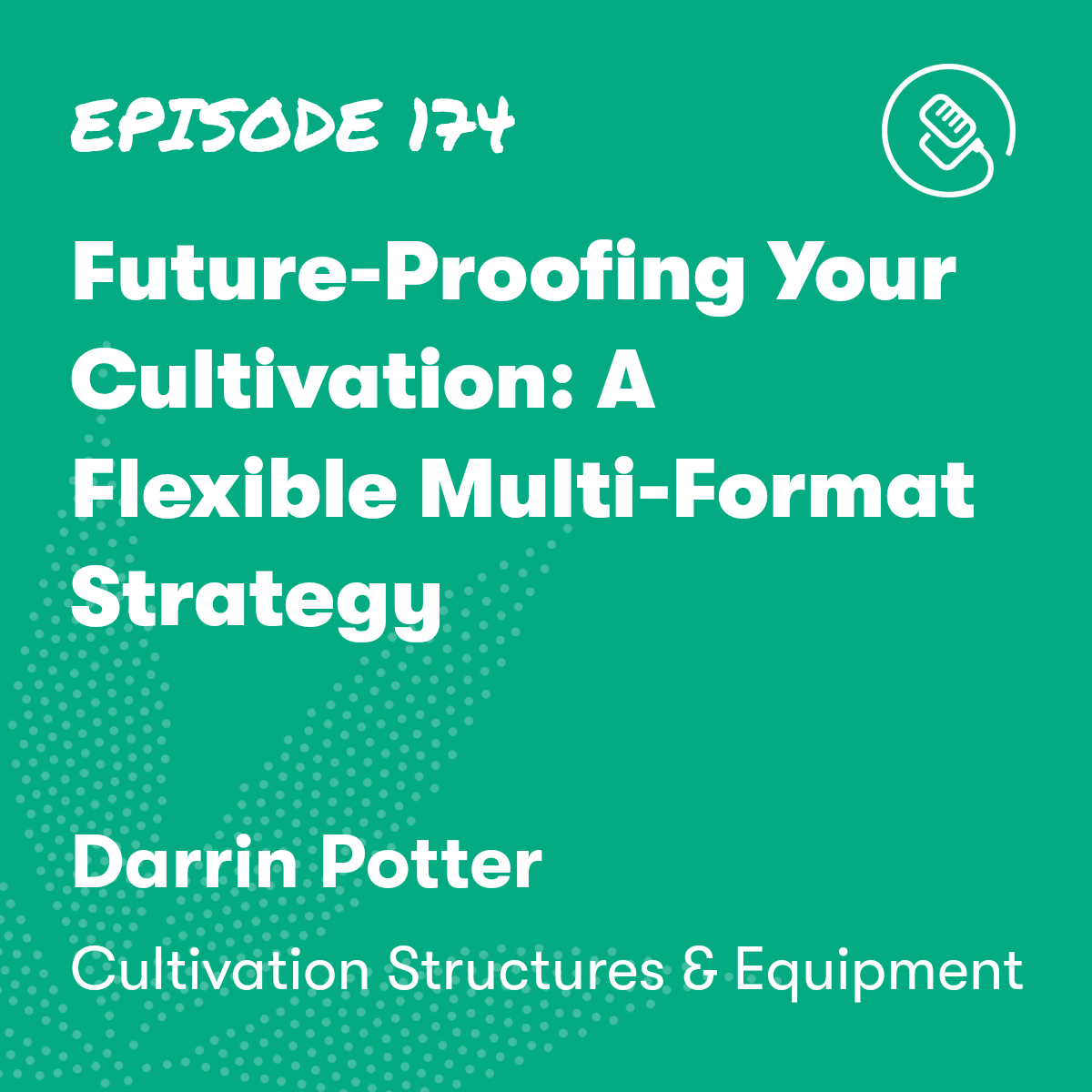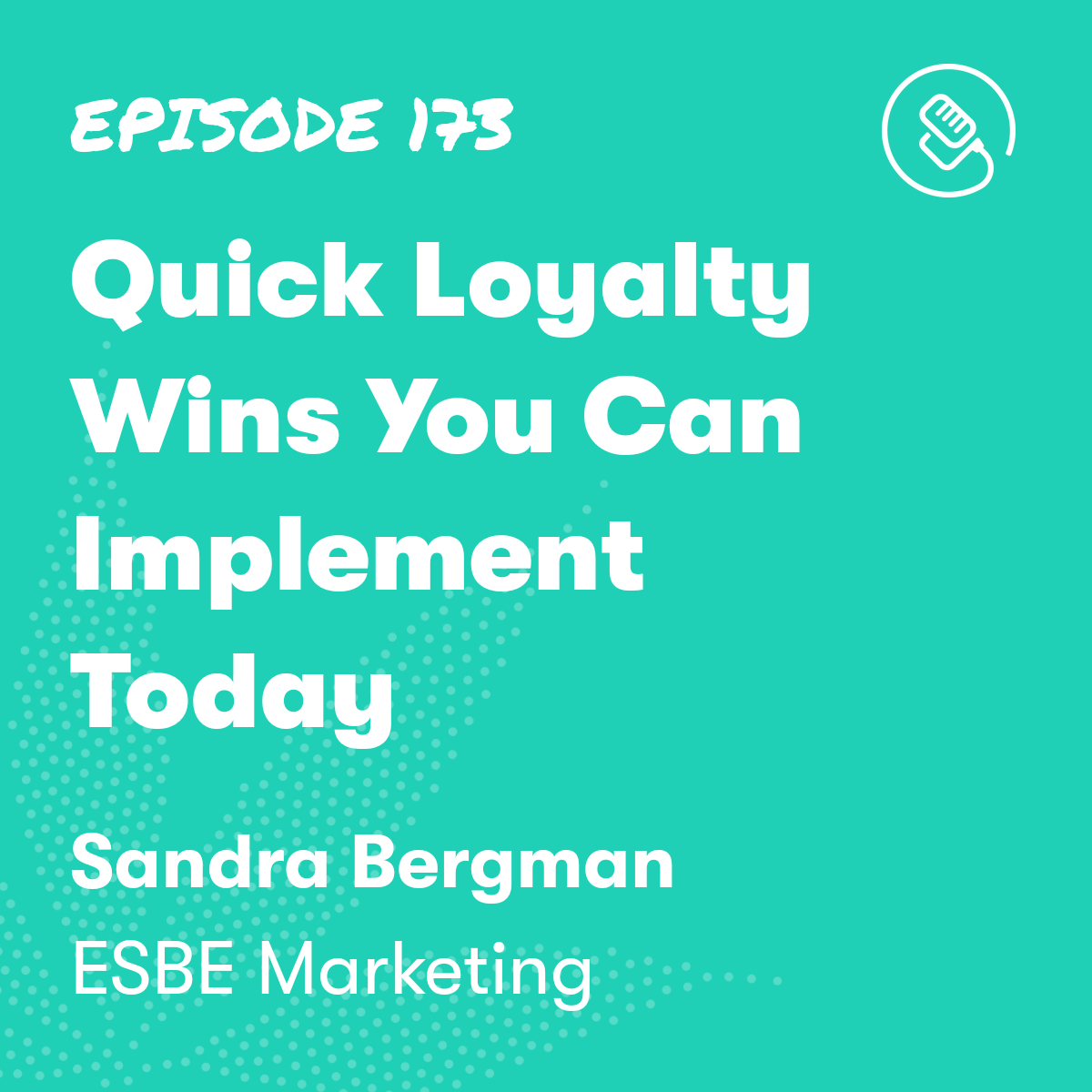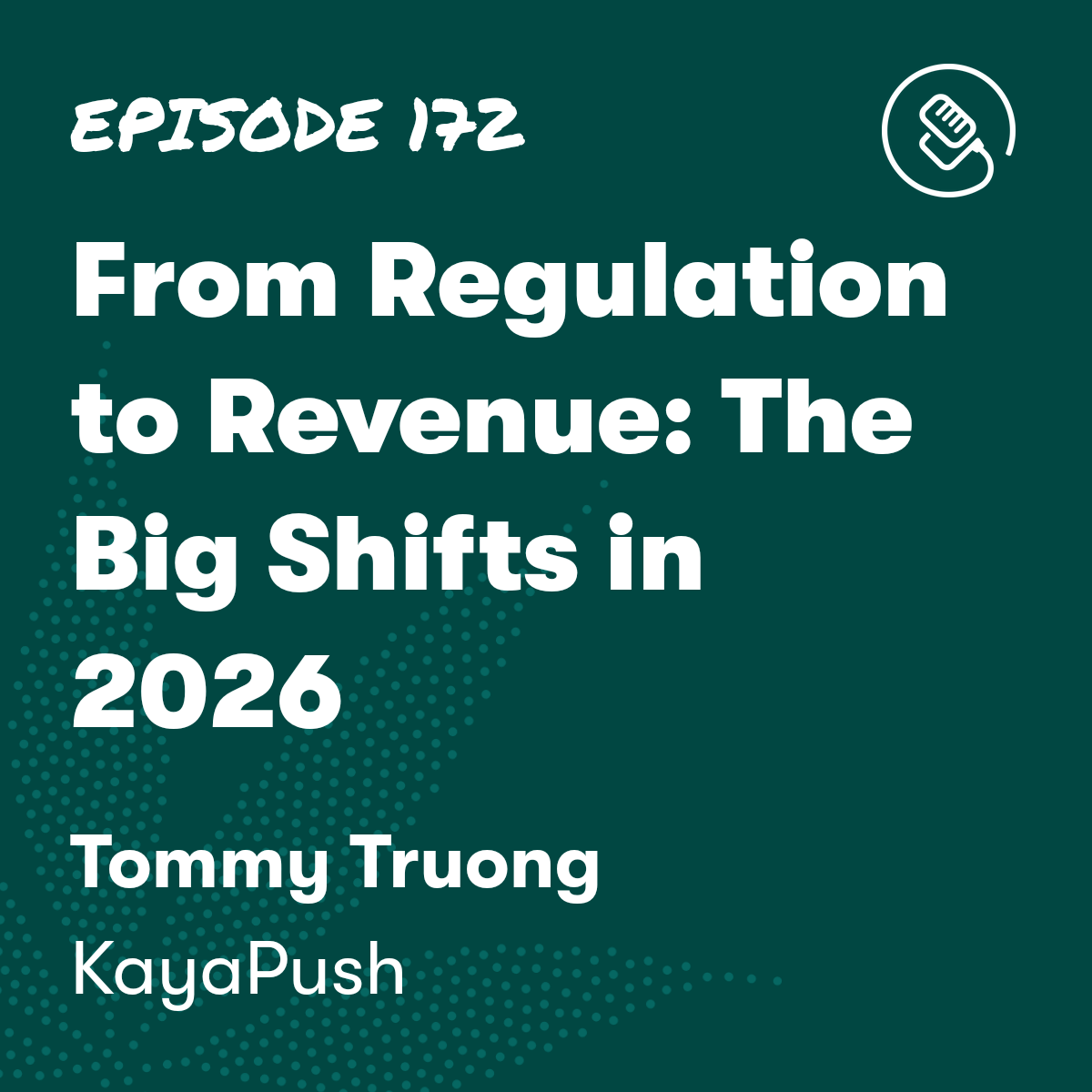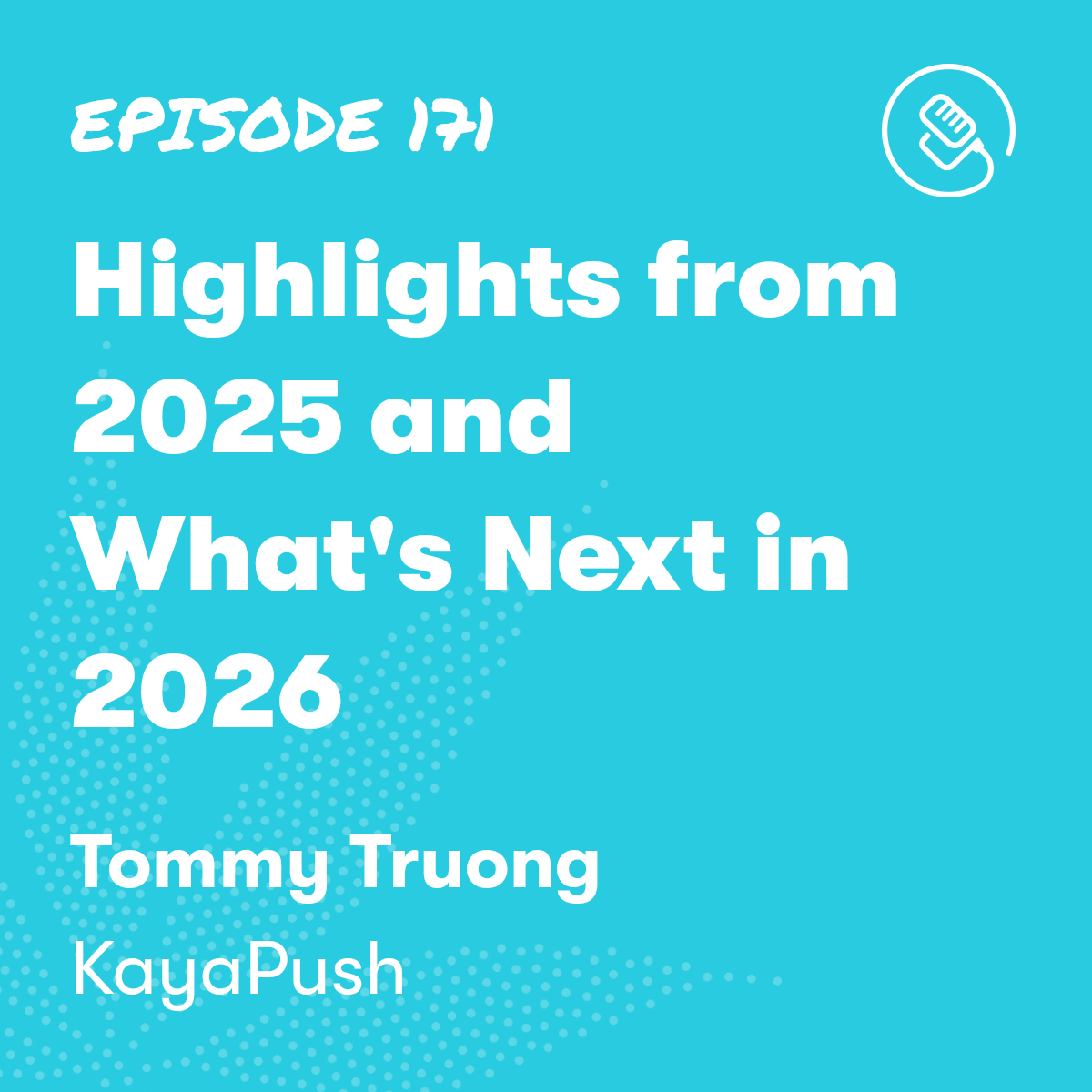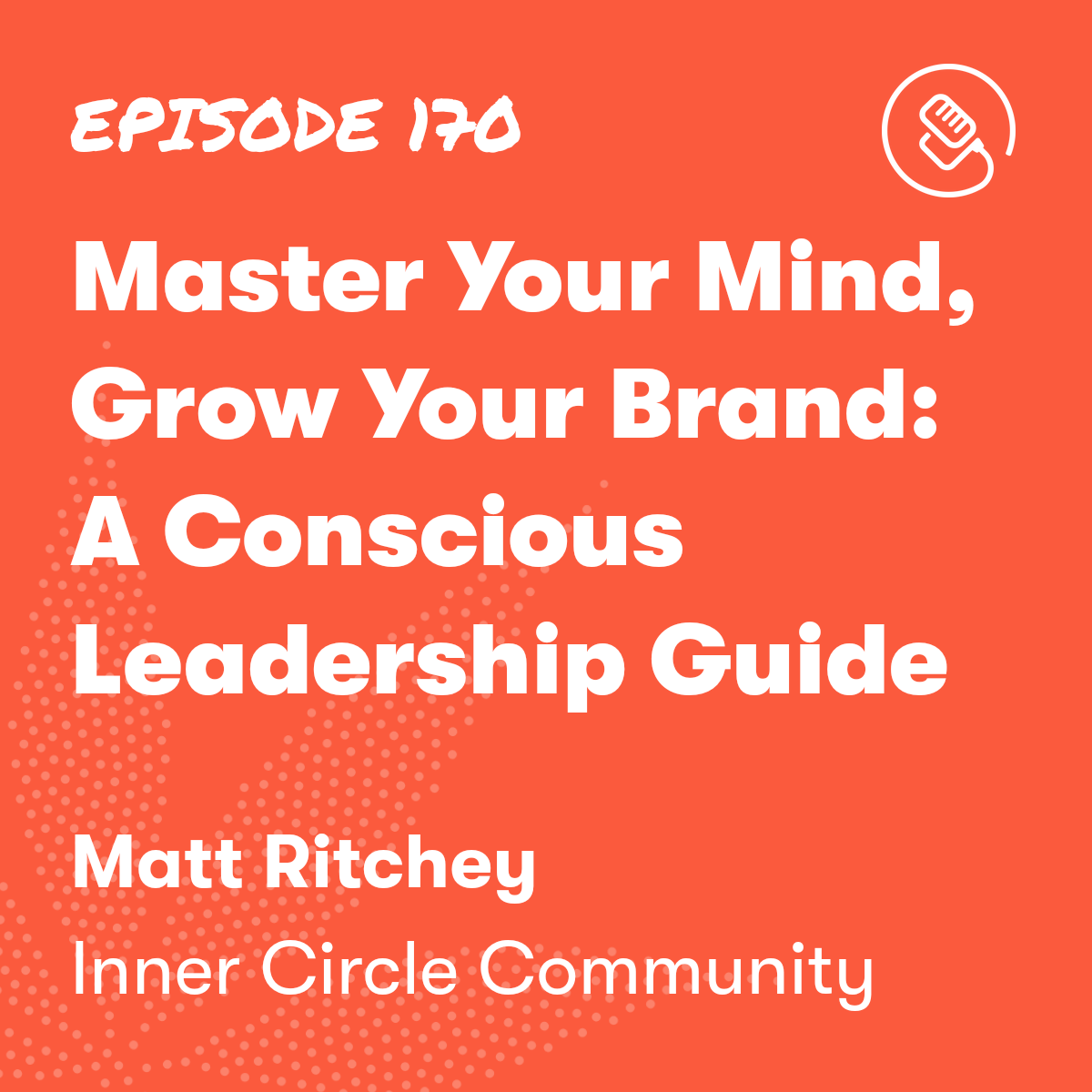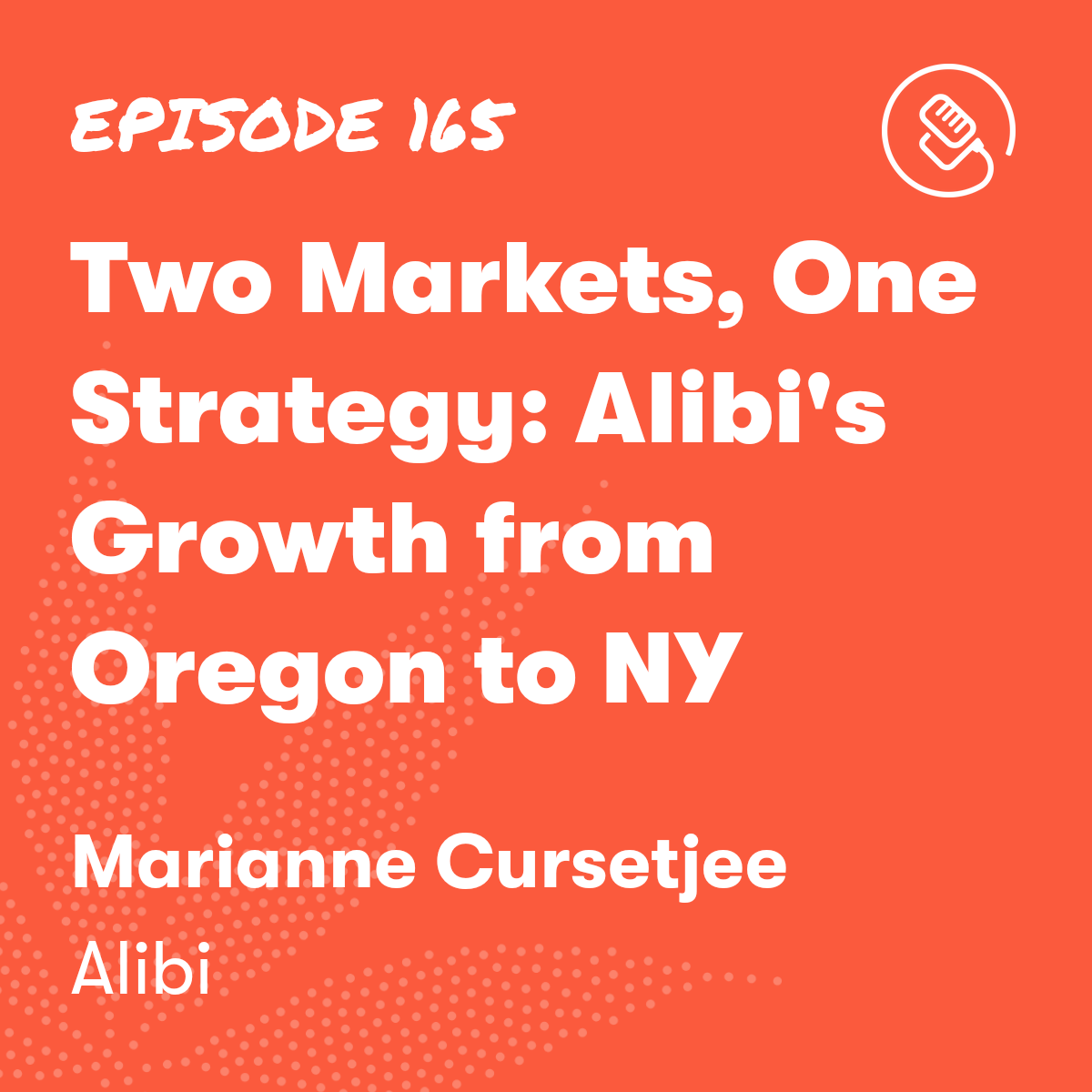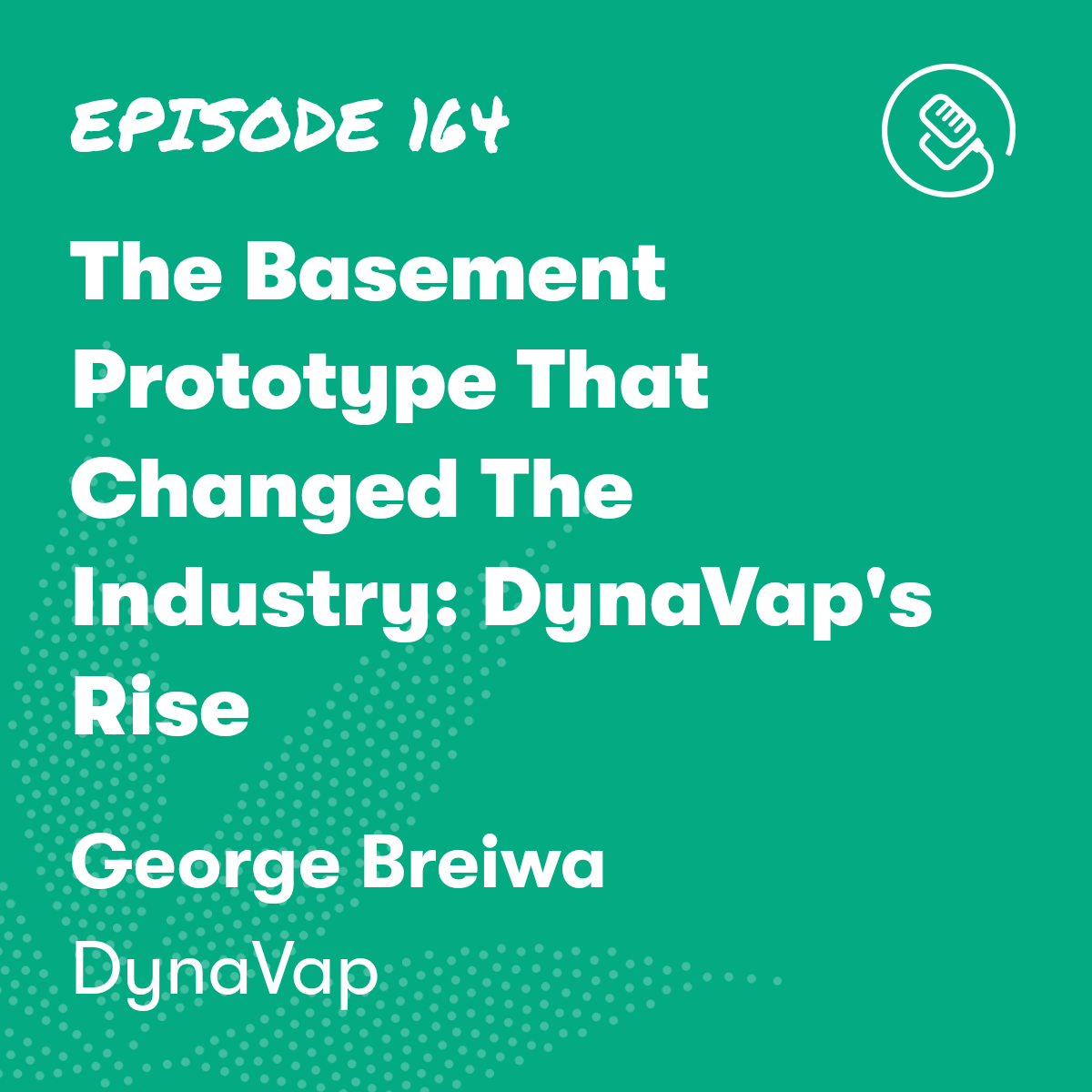

Recruiting, and Retaining the Top Talent in the Cannabis Industry
Episode Description

Episode Transcript
Jessica Cranney: When I thought about the three pillars that were able to drive that success, it was attracting the right talent, developing the right talent, and retaining them.
And so recruit is how do you attract high performing leaders? Develop? How do we train them to stay? And one of my favorite quotes is train them to leave, but treat them to stay, which is a beautiful segue into the third portion, which is retain, how do you engage the hearts and minds of your employees, which in turn will engage the hearts and minds of your consumers to retain these high-performing leaders in these high-performing teams.
Tom Mulhern: Welcome back to the Kaya Cast podcast. I am your host, Tom Mulhern, and this is the Cannabis Podcast aimed at helping you grow scale. Launch a cannabis business. Well, today I have an amazing guest, Jessica Cranney, who is the managing partner at GRN Mile High. Join me for a conversation, and when I say a conversation, I mean a long conversation.
It was, there was so much good content that we've actually decided to break this up into two parts. So we're gonna start with the first part of our conversation today where Jessica really dives into. How to get started in the cannabis industry. The three pillars of employee success that they've built their company around, and that is recruit, train, and retain.
And, you know, we go through a whole bunch of different things from how to find the right people and how to hire them. Creating a consistent interview process. There's, there's so much good.
And then next week we're gonna dive into a bonus episode where Jessica's gonna go through the four pillars of retention. I'm not gonna tell you what they are, you're gonna have to tune in next week to find that out.
So let's start with the first part of our episode, my conversation with Jessica Cranney.
Tom Mulhern: Jessica Cranney is the Managing partner and Chief Connection Officer at GRN Mile High, a prestigious cannabis consulting and recruiting firm. With an impressive background spanning over two decades, Jessica possesses extensive expertise in leadership, organizational development, and retail management.
Jessica spent more than 15 years honing her skills at a Fortune 500 telecom company. Her innate passion for people development enabled her to cultivate highly motivated and engaged teams that consistently achieved success. Eventually, Jessica's professional pursuits and personal interests converged leading her to the thriving cannabis industry, leveraging her proven track record in organizational and talent development, labor management, exceptional sales performance, and innovative marketing strategies.
Jessica has found the perfect synergy that allows her to excel in the cannabis sector. So Jessica, welcome to the Kaya Cast podcast. It's fantastic to have you here.
Jessica Cranney: Yeah, I'm really excited to be here. Thank you guys so much for having me, Tom and Team Kaya Cast. I am really, I'm honored to be here. Thank you.
Tom Mulhern: Jessica, how did you kind of transition from, you know, you had this very successful career in a telecom industry to becoming a leader in cannabis for recruiting and consulting?
Jessica Cranney: Cannabis was nowhere on my professional background, as you had alluded to.
I come from a pretty conservative you know, fortune 50 Telecombut cannabis was all over my personal background.
I found myself a little disenfranchised with corporate America for a variety of reasons, just found myself waking up and saying, I don't totally know what I'm gonna do next, but I know there something different or better for me.
And I found my way into a very large. A reputable operator
At the time they had 15 retail locations throughout Colorado. The head of their retail operations was with that operator for about a year, a year and a half scaled them from 15 locations to 17. But really found that a lot of the business models that I were bringing to the retail platform translated into the production and cultivation and manufacturing sides of the house or the HQ support side as well.
So about a year and a half having made the transition I was recruited by about four or five different operators. I was this unicorn who had, you know, 15 plus years of traditional enterprise experience, proven business models, playbooks that we knew worked.
I found myself starting a consultancy firm that was largely based in organizational development and really employ development and retention and organically kind of found myself recruiting.
And so today, Tom, long story short or short story long we spend the balance of our time consulting with cannabis and what I would consider canna adjacent operators maybe they're not plant touching like myself, but their product or service caters to the industry.
And we engage and we provide services from organizational development. Really when you think about recruiting, training, and retaining your employees simply put, do you have the right butts in the right seats doing the right things?
Tom Mulhern: For those candidates that you're looking at that are coming. Being into the cannabis industry, they're just brand new. They've been in, you know, like myself in insurance or something that they're like, oh, this is soul sucking. And they want to get into something they're passionate about.
How do you help people get started in cannabis?
Jessica Cranney: What I often educate people to do is subscribe to MJ Biz and click a couple of the daily or weekly newsletters that are important to you.
Read the digital copy monthly and just go to the front section that talks about what's new in their state. If they're in Illinois, if they're in California, Colorado, New Mexico. Just keep a pulse on the industry so that when you are given an opportunity to sit in front of somebody on the other side of that desk, you can demonstrate.
I'm not trying to get into cannabis because it's a shiny new penny. I'm genuinely interested. I've kept a pulse on the industry. I've educated myself. I understand 280e taxation, I understand child resistant packaging, those kinds of things. So, one, Educate yourself and be prepared to speak at a high level. I'm not saying you have to write a master's thesis on it, but be able to have a, an intelligent conversation that says, I care about this.
Do you find that there's certain things people can do to immediately just kind of fit in to the culture?
In many cases, folks are coming from a more traditional enterprise, right? A Nike, a FedEx, an Amazon, an AT&T
Those kinds of things. I would say be proud of those quote unquote white collar roots, but be prepared to demonstrate blue collar work ethic.
You might get into cannabis and feel like it's soul sucking too, and for entirely different reasons.
I try and scare out of industry candidates who think like this is some shiny, fun thing because it is, don't get me wrong, but you're not gonna be getting high on your 15 minute break and like ripping the the dab rig, you know, every day after work you will, but not on site.
I think there's also a misconception when you don't understand 280e taxation about some of the haircut that's required to come into a cannabis operator, a plant touching operator. You know, a director at a plant touching operator is not always compensated the same as a director at a Nike.
And that's just because of our financial and tax implications. They don't not make it up on you end up being whole, but on the base there's sometimes is a little bit of some give and take. And so you, you need to be educated about that and, and kind of serious about the commitment to get into the industry.
And so, I think if you demonstrate that authenticity and you demonstrate that commitment, Those things will come through. And so that's how you get a part of the culture. Whether you show up wearing a, a suit or overalls, I, I really don't think it matters because you will engage and encounter with everybody and, and those same two people could be heads of the same size companies.
Tom Mulhern: I'd love if you could kind of explain more about your strategy of recruit, train, and retain, what do you mean when you say recruit, train, and retain, and why does that matter?
Jessica Cranney: I have a firm passion and commitment to people first leadership, and my success throughout my career at AT&T for 17 years, my career transitioning into cannabis, both working for operators directly as well as a contracted or external consultant.
That Success has always attributed back to me not being the smartest person in the room, but hiring smarter people around me and to support me.When I thought about the three pillars that were able to drive that success, it was attracting the right talent, developing the right talent, and retaining them.
And so recruit is how do you attract high performing leaders? Develop? How do we train them to stay? And one of my favorite quotes is train them to leave, but treat them to stay, which is a beautiful segue into the third portion, which is retain, how do you engage the hearts and minds of your employees, which in turn will engage the hearts and minds of your consumers to retain these high-performing leaders in these high-performing teams.
And so those were three things that I had demonstrated exceptionally well throughout my career. And those are the areas that I have found that I add value. Those are the things that leading companies hire me to do. And I kind of said this earlier, but do you have the right butts in the right seats doing the right things?
How do you get the right butts in the right seats? What are the best ways to recruit quality candidates for leadership positions?
I think the first one is absolutely appropriate expectation setting.
Ultimately, are we qualifying the candidate appropriately for what the role and res responsibilities are, and is that aligned with what the company is willing to pay and what the candidate is willing to work for?
Expectation setting and qualification, both at the candidate level as well as at the client level, are critical.
The other thing I would say is once we identify, really what we're looking for is having interview cadence. And I'm not saying we, we don't ever deviate from it, but like, hey, the first round interview is gonna go through this person. We're not gonna go through more than three. We will get through our interview process in less than three weeks.
Because if you start dragging things out and you like somebody in the beginning, but you keep waiting for more, you're gonna lose that person. And so let's have a dedicated process.The first round is gonna be you know, just an intro conversation with HR.
The second round is gonna be a panel with the hiring manager and a few peer colleagues. And the final round is gonna be with some executive leader. those would be the three steps.
And we've got a cadence for that. We know who the players are. We have their commitment to be involved, to get their feedback and to move clearly through the process. Because that is as important to the candidate's view of the interview of the company. Cuz the interview is a two-way process. It's not just the, the company interviewing the candidate to hire them.
It's the candidate electing to go to work for them. And that process is as much a reflection on their company and the future work culture that they're coming into
On average, assuming the the company's timeline fits within this and their interview cadence does, we can move from search to offer in under three weeks. But more importantly than that, Tom, we have higher than a 75% retention ratio for 12 months or better.
Looking at the industry as a whole, what do you see as some of the most in demand positions currently, whether it's in a cannabis operator or even some of the ancillary businesses?Sales is always probably one of the highly most sought after positions in, in a range, whether it's an outside account executive to a director or VP of retail or wholesale. Just because salespeople tend to jump more often. And, and those roles tend to be most impacted by compensation. Let's just speak candidly here.
Somebody comes along with a higher compensation offer that's attractive. So sales is kind of something that we always see.
Outside of sales, where we see the majority of the work that we will place is in finance, surprisingly, and that's an interesting group to recruit for, especially at the executive levels because let's just be candid finance people were trained and educated with, in most cases federal guidelines and we are not it.
And so that makes people a little nervy and I, I totally get it. The finance folks are, do the due diligence to really look at what company they're joining.
And when you're offering me an equity package, when I take a $25,000 base decrease, unpack that for me, realize that they ask those questions a little bit differently.
The other position that we find a lot of, and this won't surprise you, is I'm gonna say operations slash production. You might be a project manager in the cultivation side, you might be a project manager on the HQ support side, but think project management or director of operations positions that either are in production and manufacturing or on the HQ side.
So just kind of people to help organize, strategize, build the big picture, and then lead the teams to execute.
Tom Mulhern: What are some examples of the training and leadership development content that you provide for your clients?
Jessica Cranney: We do a lot at the executive level with merger and acquisition, what I again, consider unification coaching.
You know, no matter how how much people try, there is a feeling of bristleness from one side to another. When two companies come together it's never usually intentional, but people can't kind of help, but some feel like somebody's calling their baby ugly.
So for me to come in as this neutral third party and have everybody sit in an offsite location and the only person facilitating anything has no skin in the game, we kind of need everybody to check what yesterday looked like at the door, cuz we're gonna leave today with what our go forward strategy looks like
The other thing that we do is we will do departmental or leadership level coaching in many cases through merger and acquisition.
Somebody will acquire somebody in a role and they're either required to keep that person in the role or they say, you know, we, we think we can win with them. We just need to tweak a couple of things, but we don't have the bandwidth. Can you come in with 90 days and walk them through soft skills, performance management, set some KPIs, and so at the end of those 90 days, we either have performance improvement or we've got documentations that says this might not be the right fit.
And then at the simplest level, we do a lot of frontline coaching, mostly on the retail side. Think customer experience modeling product development. We do a lot of onboarding, so like the, the history of the company and, and those kinds of things. So like when they're onboarding a, a new frontline employee or any employee, they've got that web-based training.
Do you find that there's a pretty good ROI for retention?
How we measure our success for our clients on the training and development side is increase to sales or decrease to cost, right?
Are we effectively retooling your workforce to either earn you more money or save you more money? And that's how we measure that. And so usually if we've been engaged for frontline sales and development training, you will see an increase to your average basket price or your average ticket price by north of 15%.
In many cases, it's north of 20%. On the labor and management side or the the cost reduction side, you will see a decrease of about 15%. What I find with a lot of my clients is in both retail and on production. They often have like three or four people kind of turning one wrench or they haven't optimized scheduling to the best needs of what their consumers need.
But rather we have eight people off on a Saturday because two of them have Frisbee golf and one of them's got basket weaving. And the other one's kid has a something and the other one has a flat tire. Love that. And I'm not trying to be difficult, but we have to optimize our schedule to the needs of our consumers.
We can't have full lobbies on Friday, Saturdays and Sundays when our consumers are there because our employees don't feel like working. So, usually you will
see an improvement to your labor and operating costs by just kind of reallocating headcount. We don't do headcount reductions, and I want to be clear, I don't achieve that through coming through and axing your headcount.
We achieve that by ensuring again, that the right people are in the right places, doing the right things. And you know, if you've got a store that has, I'll just use round numbers, 10 bud tenders, they have no business having four assistant managers. And two more inventory people and a store manager. Think about that.
Over half of your staff is not designed to be weighing weed. In most retailers, that's anywhere from 20 to 25%. If you're higher than 30, you're really pushing it. And so those are just things that we're able to help with folks on that front.
That brings me to retention, and when we do engage on retention, I'll open this one with, with measurable data and then we can back into it.
Usually when we engage with folks from an employee engagement perspective, you will see a retention of over 25% from frontline through executive. We've engaged at a variety of levels.,
And so kind of allowing me to be that person that says, Hey, must be present to win, right? Like, are you really here? Are you engaged? Are you showing up or are you coming in and checking the box? we will increase employee engagement by 25%. There's a few other ways that we do that.
And when we engage on a retention front, you'll usually see an increase to your customer loyalty or your brand loyalty of over 20%. So you know in that it's because your employees are better trained,they're better able to articulate promotions pricing, product, things that are gonna best suit the consumer based on what they say they need that day.
So you're looking at about a 20% improvement to retention on both the employee and customer front.
Tom Mulhern: Can you talk a bit about the Connect and Contribute initiative and the importance of giving back?
Jessica Cranney: When I got into cannabis, I saw that there was a real different commitment to the community and I think that's because the industry is so thankful for the municipalities that have supported the industry and brought them in that they want to give back, whether that's education, whether that's medical what have you.
And so I took a page out of a lot of my client's books, whether they're adopting a highway for cleanup or, you know, doing conservation programs with local energy companies in their facilities. They're just always kind of looking for ways to give back and I really appreciated the authenticity that was a part of their rhythm with that.
And so I took a page out of their book and one of the things that we do is whenever we engage with a client, new or existing Any services that we invoice, whether they're for recruit searches and or any training or development or retention services. Any invoice that we send, we will turn around and give a $420 charitable donation to the 5013c of our client choosing.
And in the event that they don't have one that's particularly of interest or just kind of can't think of one at the time or what have you, we've actually partnered with four. And those four are Last Prisoner Project. Obviously, people impacted by incarceration of cannabis related offenses.
The Wounded Warrior Project , Freedom Service Pets of America and St. Jude's Hospital.
I think every cannabis business should be grateful that we can even operate. And so I think an initiative like this can be implemented into any business, whether you're an operator, an ancillary business,
Tom Mulhern: I am truly grateful to work in the industry and I, I so appreciate the pioneers of the industry, which is why last prisoner project was one of the first nonprofits that we wanted to partner with for obvious reasons.
Jessica Cranney: The, the gratitude and the gratefulness that we have being able to give back as a part of that and, and also demonstrate to our clients, like, I see the work that you guys are doing for your communities, and I want you to know that, that we're aligned in that. And I share your commitment and your passion in that regard.
Tom Mulhern: One last question. What is one tip that you would have for a business owner when it comes to hiring and recruiting talent? From your vast experience, what's just one little tip that you would have for someone?
Jessica Cranney: I've said this, these two words a couple of times, but transparency and authenticity are critical. So it's important that you're transparent about what you're hiring this person to do. And that you're authentic in the need that you have for this person to come in.
And in some cases I've worked with people who said, well, they brought me in as this and they were gonna promote me to this, and it's been a year and it hasn't happened. And I know they want to, but and, and so we really need to hold ourselves accountable and look in the mirror and say, what am I looking for and how honest am I willing to be with myself about that?
And how honest am I willing to be with the candidate about that?
How can people connect with you and GRN Mile High and what you're doing? Thank you for asking. Yeah, we do support operators in any legalized, whether it's medicinal or recreational state in the United States and Canada. We also do work with cbd exclusive providers as well. And you can get in touch with me guys any way that you would like. We are on LinkedIn at GRN Mile High.
We are on Instagram at GRN Mile High. Facebook got a website. You can find me directly. My contact info will be here. Shit. Send a smoke signal, tap it out in Morse code. Guys. I'm way too old for TikTok or Snapchat, but pretty much anything else is fair game.
Tom Mulhern: Jessica, this has been amazing. Thank you so much for taking the time.I wanna have you back to even dive deeper into some of this stuff. So I really appreciate you being on the show.
Jessica Cranney: I really appreciate the opportunity, the invitation, and I would be honored and privileged to come back for any follow-up topics that you know, are exceptionally interesting to, to you and the audience.
Tom Mulhern: I want to thank Jessica again for taking the time to, unpack so much good content about how to find the right people, how to keep those people, and really how to develop a company culture that is going to, keep people around.
You know, when people know that you support them, that you care about them, that you've got their backs, they're gonna stick around. And so, I hope you found value in this. I'd really encourage you to listen next week to the rest of my conversation with Jessica Cranney, where she's gonna dive into four pillars for retaining great employees.
So tune into that. If you haven't subscribed to the podcast, subscribe to the podcast because that really helps us deliver content to you every week that is gonna help you grow your business as well. I really need your help. There's a link in the bio for you to nominate. The Kaya Cast podcast for Cannabis Podcast of the year at MJ Biz Con's, brand new MJ awards happening this fall.
All you have to do is click the link, put in your favorite cannabusiness and hit submit. If we get enough nominations, we really, really hope that we are able to win this award this year. And again, I appreciate everyone who's listening and stay tuned to the Kaya Cast podcast.
